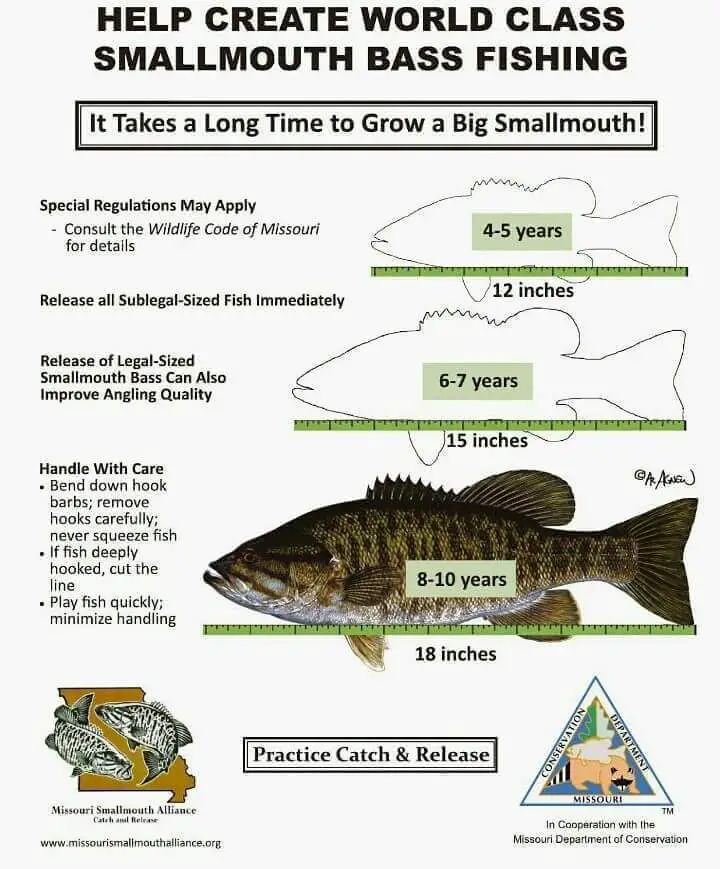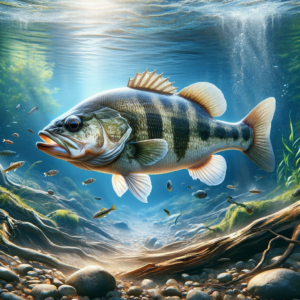Smallmouth bass, the resilient creatures of freshwater, have fascinated anglers and nature enthusiasts alike for decades. Known for their feisty nature and impressive acrobatics, these fish are sought after for their challenging fights and delectable taste. But have you ever wondered just how long these smallmouth bass can survive in the wild? In this article, we will explore the lifespan of smallmouth bass, shedding light on their average longevity and the factors that can determine their ultimate fate. So, grab your fishing gear and get ready to discover the secrets of these remarkable fish.
Average Lifespan of Smallmouth Bass
Welcome to this comprehensive article on the topic How Long Do Smallmouth Bass Live? If you’ve ever wondered how long these fascinating fish live, you’ve come to the right place. We’ll explore various factors that can affect their lifespan, including both environmental and human factors. Additionally, we’ll delve into the comparison with other bass species, discuss record-breaking smallmouth bass, highlight the importance of smallmouth bass, and touch on conservation efforts. So let’s dive in!
Studies and Research
To understand the average lifespan of smallmouth bass, numerous studies and research have been conducted by scientists and fisheries experts. These studies involve monitoring fish populations in different habitats and collecting data on their lifespan. By recording the age of captured fish and examining growth patterns, scientists can gain invaluable insights into their lifespan.
Factors Affecting Lifespan
Various factors can influence the lifespan of smallmouth bass. These can be categorized into environmental factors, physical attributes, behavior, and human factors. Let’s explore each of these factors to get a better understanding.
Environmental Factors
Water Quality: Good water quality is crucial for the health and long life of smallmouth bass. Clean water, with sufficient oxygen levels and low pollution, promotes their overall well-being and enhances their ability to thrive.
Temperature: Smallmouth bass prefer cooler water temperatures ranging between 60 to 75 degrees Fahrenheit. Extreme temperatures can negatively impact their lifespan, whereas optimal temperature conditions can contribute to their longevity.
Predators: The presence and abundance of predators in their habitat can affect the average lifespan of smallmouth bass. High predator populations can pose a threat to their survival, reducing their overall lifespan.
Physical Attributes and Behavior
Size and Growth Rate: Smallmouth bass have a relatively slower growth rate compared to other bass species. Smaller individuals tend to have a shorter lifespan, while larger individuals have the potential to live longer.
Feeding Habits: Their feeding habits also play a role in their lifespan. Smallmouth bass tend to be opportunistic feeders, consuming a variety of prey including insects, crayfish, and small fish. A diverse diet can contribute to their overall health and longevity.
Spawning Behavior: Successful reproduction is crucial for sustaining fish populations. Smallmouth bass typically spawn once a year, usually during late spring or early summer. Factors such as suitable spawning substrate and adequate water conditions can influence their reproductive success and, consequently, their overall lifespan.
Human Factors
Fishing Pressure: Human activities, such as recreational and commercial fishing, can impact the average lifespan of smallmouth bass. Overfishing can lead to a decline in their population and reduce their lifespan. Implementing sustainable fishing practices, such as catch-and-release, can help mitigate these effects.
Habitat Destruction: Loss of suitable habitat due to factors like urbanization, damming, and pollution can have detrimental effects on smallmouth bass populations. Destruction of their spawning areas, nesting sites, and shelter can decrease their lifespan significantly.
Pollution: Pollution, including chemical contaminants and excessive nutrient runoff, can have severe consequences for smallmouth bass. Water pollution can lead to diseases, reproductive issues, and reduced lifespan. It is essential to minimize pollution and protect the water quality of their habitats.
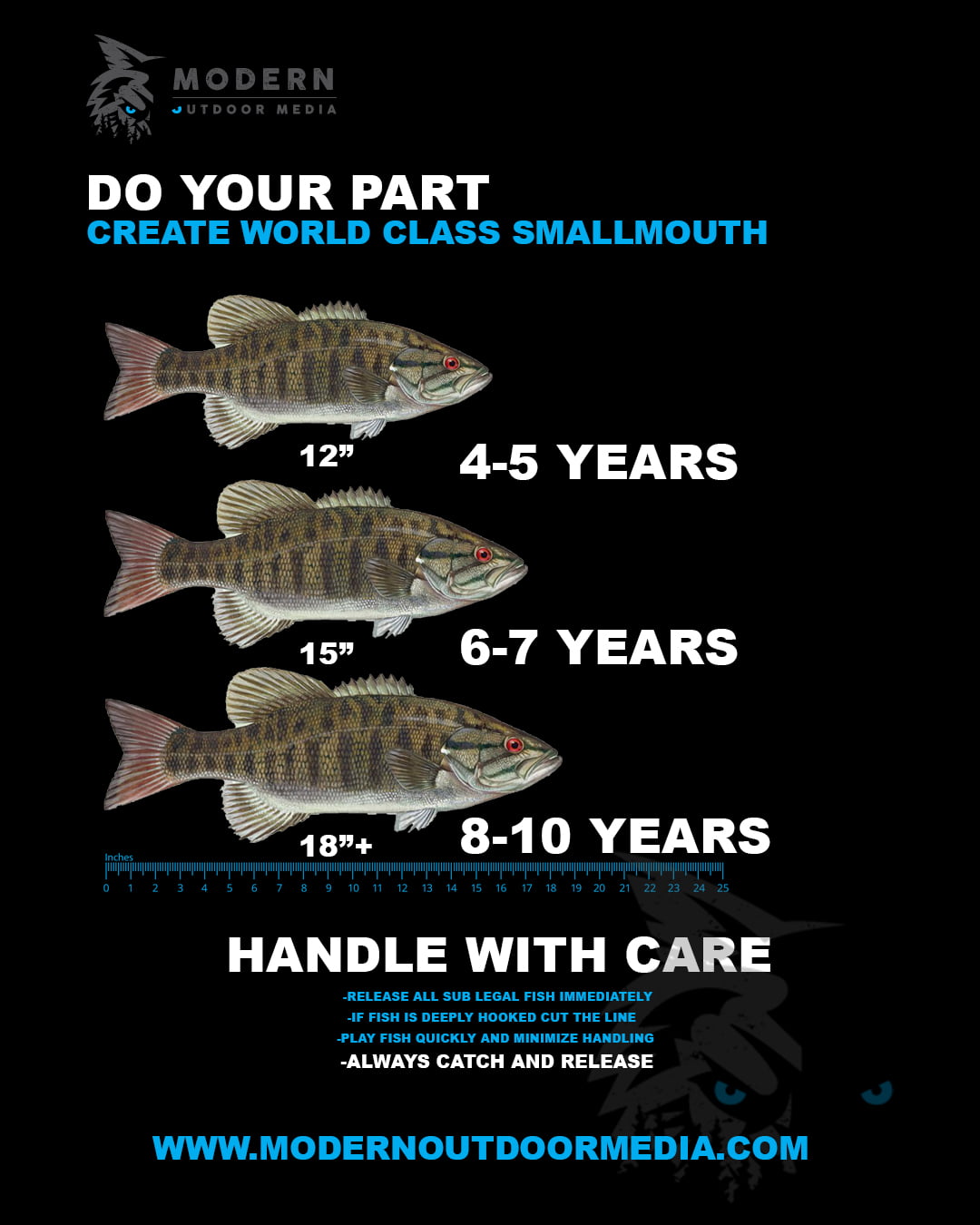
Comparison with Other Bass Species
Smallmouth Bass vs. Largemouth Bass: While both smallmouth and largemouth bass belong to the sunfish family, they have some distinct differences. Largemouth bass can live longer than smallmouth bass, with lifespans reaching up to 20 years or more. Their dietary preferences, habitat choices, and growth rates also vary. Smallmouth bass are generally more adaptable to clear, cool-water environments, while largemouth bass thrive in warmer, murkier waters.
Smallmouth Bass vs. Spotted Bass: Smallmouth and spotted bass also have several similarities and differences. Spotted bass typically have a shorter lifespan compared to smallmouth bass. However, both species exhibit similar feeding habits and prefer similar habitats. Smallmouth bass tend to grow larger and have a more robust body compared to spotted bass.
Record-Breaking Smallmouth Bass
Notable Catches: Over the years, there have been remarkable catches of smallmouth bass, with some specimens reaching impressive sizes. The International Game Fish Association (IGFA) maintains records of such catches, recognizing these exceptional individuals and their contribution to the angling world.
Size and Age: The largest smallmouth bass ever caught weighed a staggering 11 pounds and 15 ounces. While the average lifespan of smallmouth bass typically ranges from 10 to 15 years, these record-breaking individuals may have lived longer due to their exceptional size and genetic factors.
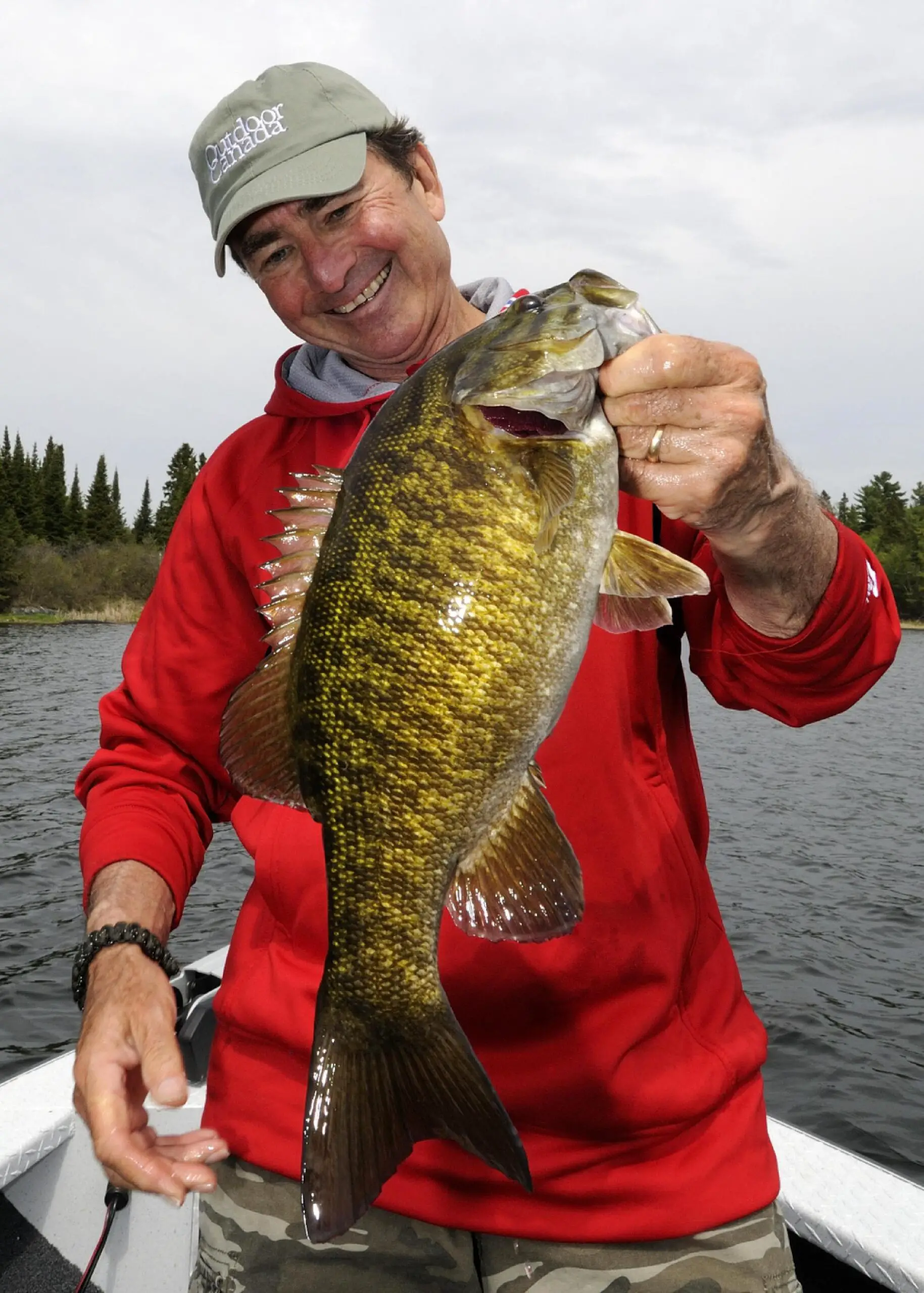
Importance of Smallmouth Bass
Ecological Value: Smallmouth bass play an essential role in aquatic ecosystems. As predators, they help to control prey populations, contributing to the overall balance of the food chain. They are also indicators of healthy water quality, as their presence indicates the availability of suitable habitat and prey species.
Economic Significance: Smallmouth bass are highly sought after by recreational anglers, attracting fishing enthusiasts from around the world. Their popularity generates substantial economic benefits, supporting local economies through fishing tourism, equipment sales, and related industries.
Conservation Efforts
Catch-and-Release Practices: Conservation-minded anglers practice catch-and-release, which involves releasing fish back into the water after catch, reducing the impact on smallmouth bass populations. This approach helps maintain fish stocks and promotes the sustainability of their populations.
Habitat Restoration: Efforts are underway to restore and protect the habitats of smallmouth bass. These initiatives focus on improving water quality, preserving spawning areas, restoring riparian vegetation, and minimizing pollution. Habitat restoration projects play a vital role in maintaining healthy ecosystems and providing suitable conditions for smallmouth bass to thrive.
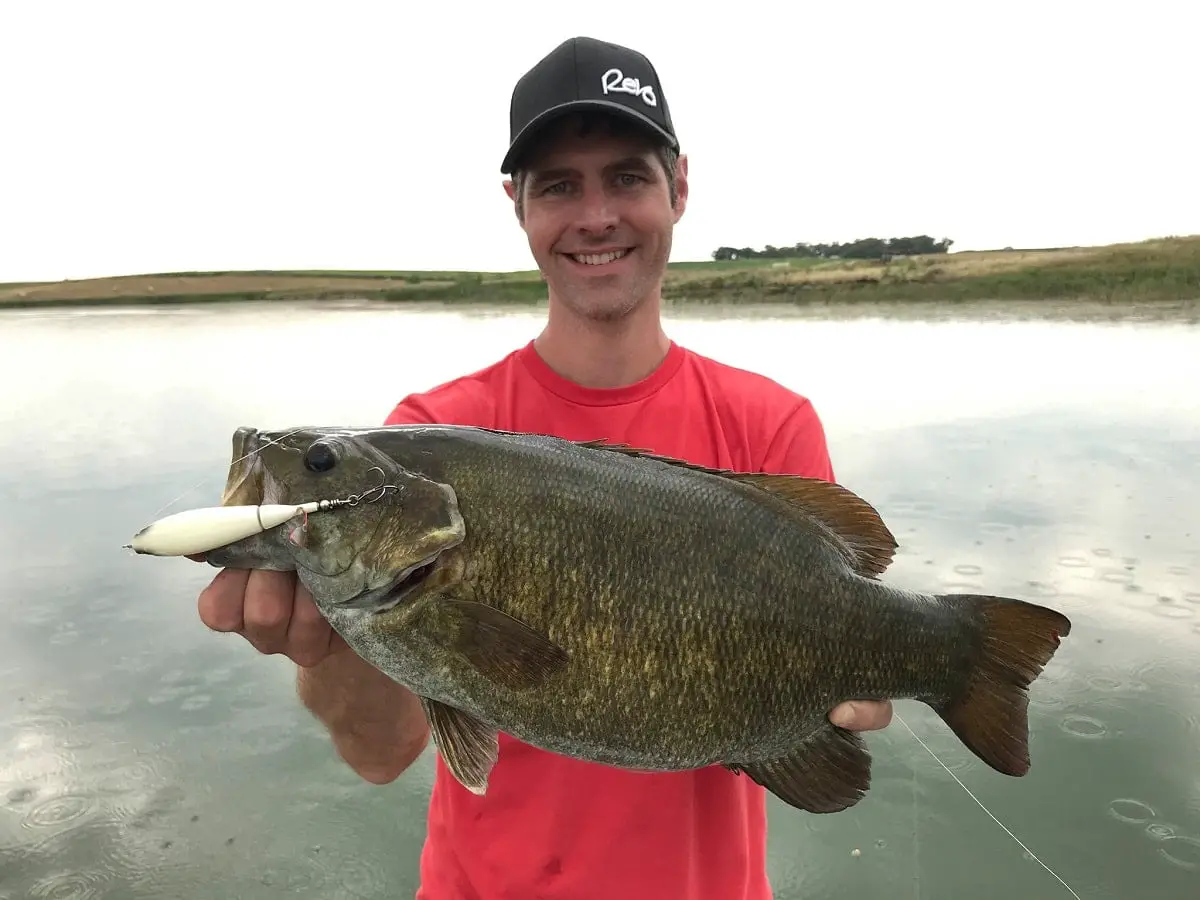
Recreational Fishing Tips
Best Fishing Practices: When fishing for smallmouth bass, it is essential to handle them carefully to minimize stress and injuries. Use proper fishing techniques, such as using barbless hooks and practicing proper catch-and-release methods. This ensures their survival and allows for continued enjoyment of fishing in the future.
Recommended Gear: To increase your chances of success while fishing for smallmouth bass, using appropriate gear is crucial. Light or medium-action spinning rods and reels, along with the right lures, such as crankbaits, jigs, and soft plastic baits, can significantly enhance your fishing experience.
Conclusion
In conclusion, smallmouth bass have an average lifespan that ranges from 10 to 15 years, but various factors can influence their longevity. Environmental factors, physical attributes, behavior, and human activities all play a role in determining their lifespan. It is essential to understand and appreciate the importance of smallmouth bass, both ecologically and economically. By practicing sustainable fishing techniques and supporting conservation efforts, we can ensure the continued existence of these remarkable fish for generations to come. So, next time you spot a smallmouth bass, remember to appreciate their beauty and contribute towards their conservation. Happy angling!
